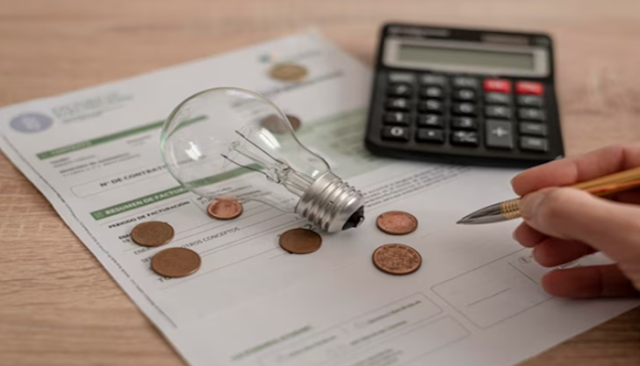The top three areas businesses can save energy money are lighting, heating and cooling, and IT equipment. Implementing energy-efficient practices can reduce a company's energy costs by as much as 40 percent.
Energy costs can be reduced in a number of ways for commercial establishments. Businesses can reduce energy consumption and costs by adopting energy-efficient practices and switching to renewable energy sources.
Additionally, you may want to consider conducting an energy audit to identify areas of inefficiency and get updated information about business energy providers near you.
Benefits of Saving Money on Energy Bills
Saving money on commercial energy costs has numerous advantages. These include:
● Reduced operating costs: Saving money on energy bills frees up cash flow you can use for other business expenses or investments.
● Improved bottom line: Over time, the savings from energy efficiency can add up and significantly improve a business's bottom line.
● Increased environmental sustainability: By reducing energy consumption, businesses can help reduce their environmental impact.
● A pleasant and cost-effective workplace has increased job satisfaction among staff members.
Assessing Current Energy Usage
The first step to saving money on business energy bills is to assess your current energy usage by doing an energy audit.
An energy audit is a comprehensive review of a business's energy consumption. It identifies areas of high energy consumption and evaluates the efficiency of the equipment. The audit also analyses energy usage patterns and identifies opportunities for improvement.
Services for conducting energy audits can be obtained from a variety of businesses. These companies can provide businesses with a detailed report on their energy usage and recommendations for improvement.
Implementing Energy-Efficient Practises
Understanding your energy consumption patterns is the first step towards adopting more environmentally friendly habits. Many different strategies exist for cutting a company's energy consumption, such as:
● Upgrading lighting systems: Transitioning to LED lights is one of the easiest and most effective ways to save energy as LED lights are said to reduce energy consumption by as much as 80% compared to incandescent bulbs and last up to 25 times longer.
● Installing motion sensors and timers: Motion sensors and timers can automatically turn off lights in unoccupied areas. Doing so can cut your energy use by as much as 30 percent.
● Optimising heating, ventilation, and air conditioning (HVAC): Regular maintenance and filter replacement can help improve the efficiency of HVAC systems. Setting programmable thermostats and using zoning and occupancy-based controls can also help reduce energy consumption.
● Investing in energy-efficient equipment: Upgrading to energy-efficient appliances saves businesses money on their energy bills. Energy-efficient appliances use less power and last longer than their less efficient counterparts.
● Encouraging energy-saving habits among employees: Educating employees on energy conservation and promoting responsible energy use can help reduce energy consumption throughout the business.
Renewable Energy Options
In addition to implementing energy-efficient practices, businesses can also consider using renewable energy sources to reduce their energy costs. Businesses may want to consider reducing their reliance on fossil fuels by changing over to renewable energy sources like solar and wind power, which do not produce emissions.
Businesses can benefit from renewable energy sources in a variety of ways. Solar panels, which can be installed on the rooftops of businesses, are one option for harnessing solar energy. In addition to purchasing RECs, businesses can reduce their carbon footprint by supporting renewable energy.
Monitoring and Managing Energy Consumption
You should track your energy usage to see if you can meet your targets after implementing energy-saving measures and switching to renewable power. You can do this by installing smart meters and energy management systems.
Smart meters can track energy use in real-time. This information can be used to pinpoint hotspots of excessive energy consumption and monitor the efficacy of conservation efforts.
Energy management systems can collect and analyse energy usage data. This data can be used to set energy-saving goals, track progress, and identify opportunities for improvement.
Collaboration and Incentives
There are a number of government and non-profit programmes that offer incentives for businesses that implement energy-efficient practices. These rebates and tax credits can reduce the out-of-pocket expense of installing energy-saving measures in commercial buildings.
Businesses can also collaborate with other businesses to share best practices and take advantage of economies of scale. For example, businesses can pool their resources to purchase renewable energy or install a shared energy management system.
Conclusion
By implementing energy-efficient practices, using renewable energy sources, and monitoring and managing their energy consumption, businesses can reduce their energy costs and improve their overall sustainability.
Online businesses and remote workers continually demand more energy use, which can harm our carbon footprint if left unchecked. You may want to delve a little deeper into how the rise in energy demand correlates with increase in online jobs.
This benefits the environment and enhances their reputation as socially responsible organisations. More satisfied and productive workers are one additional benefit of energy-saving measures.

No comments:
Post a Comment